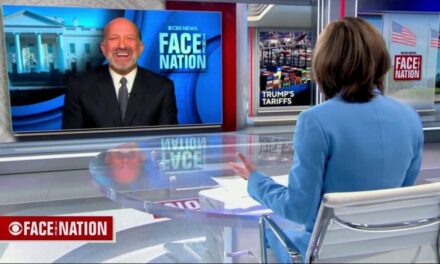In a riveting finale to its season, Saturday Night Live (SNL) took sharp aim at former President Donald Trump’s complex relationships in the Middle East, particularly his ties with various leaders and the ongoing controversy surrounding the Qatar jet incident. The comedic sketches, infused with the show’s signature satirical style, illuminated the nuances of international diplomacy through the lens of humor.
The SNL finale, which aired just as the nation was re-engaging in discussions about the Middle East, has received widespread attention for both its political commentary and its ability to provoke thought while entertaining. The skits aimed to shed light on the absurdities of Trump’s so-called “bromance” with several Middle Eastern leaders, including his past warm relations with Saudi Arabia, Israel, and Qatar.
Trump’s relationships with these countries have been thoroughly debated, and SNL seized the opportunity to poke fun at the interactions, depicting the former president as a character who is not only trying to maintain friendships but also navigating deals that often appear one-sided. The show aptly highlighted how these political connections have, at times, looked more like personal friendships than strategic alliances.
In an opening skit, a humorous segment portrayed Trump attempting to bond with Middle Eastern leaders over shared interests, such as golf and expensive luxury items. As caricatures of leaders like Saudi Crown Prince Mohammed bin Salman and Israeli Prime Minister Benjamin Netanyahu interacted with Trump, the skit exaggerated their dialogue, focusing on extravagant deals and mutual back-patting, leaving viewers chuckling at the overly friendly tone veiling serious political undertakings.
One of the most pointed critiques arose from the ongoing debates surrounding the military contract involving Qatar’s purchase of high-end jets from the United States. The SNL writers crafted a sketch that showcased the absurdity of the deal, emphasizing the ironic timing and the manner in which it was presented to the public. In the skit, Trump was bombarded with questions about the jets, leading to a series of exaggerated and nonsensical responses that captured the essence of the controversy.
This portrayal served to underline the confusion surrounding international trade agreements and military contracts, specifically highlighting how deals can sometimes prioritize political relationships over national security concerns. The humor reflected a critical inquiry into whether such transactions truly benefit the average American citizen or merely serve those at the top making decisions.
Additionally, the finale made clever use of celebrity impressions and absurd scenarios to keep the tone light while weaving in serious undertones about U.S. foreign policy. These skits not only entertained but also encouraged viewers to think critically about the ramifications of these high-stakes relationships. By blending comedy with a semblance of reality, SNL rallied its audience around the notion that comedy can illuminate serious issues in society.
One facet of Trump’s foreign policy that SNL did not overlook was the unpredictable nature of diplomacy under his administration. The show portrayed Trump as a character who often ignored traditional diplomatic protocols in favor of personal connections and impulsive decisions, painting a humorous yet concerning picture of how fragile international relations can be.
The show also included guest appearances by actors impersonating political pundits, which allowed for commentary on the media’s role in shaping public perception surrounding Trump’s Middle Eastern dealings. The segment became a meta-narrative about how the news cycles around these events often become comedy for those outside the political machine, as they put forth exaggerated interpretations of factual discussions.
Ultimately, SNL’s finale provided an essential critique of the perceived absurdity in Trump’s foreign policies, the ongoing relationships between the U.S. and Middle Eastern nations, and the controversial military contracts extending to nations like Qatar. While comedy can be a tool for trivialization, the show used humor as an entry point to discuss serious global issues faced today in an accessible manner.
By the end of the finale, it was clear that SNL had not shied away from handling delicate subjects through its distinct lens of satire. The portrayal of Trump’s Middle Eastern relations may have often seemed humorous; however, it harbored underlying truths about the complexities and contradictions of U.S. foreign relations.
As the audience erupted into laughter, it was a reminder of the necessity of such discussions, blending entertainment with an awareness of real-world scenarios that might otherwise feel daunting or inaccessible. The show’s ability to captivate its viewers while addressing significant political themes showcased just how impactful satire can be in contributing to public discourse.
The finale ended on a note that seamlessly transitioned between laughter and reflection, leaving viewers considering the implications of politics in their everyday lives. The skits effectively evidenced how political relationships can simultaneously be both amusing and alarming, urging audiences to reflect on the affected dynamics in their world.
Social media was abuzz following the airing, with clips shared widely, signaling both appreciation for the show’s approach to addressing current events and the resonance of the message delivered. Many viewers expressed the sentiment that while SNL might use humor to entertain, the issues sketched out are of utmost importance and warrant ongoing discussion.
In a time where news cycles often feel overwhelming and divisive, the SNL finale encapsulated a moment of levity while still pushing viewers to think critically about the stakes surrounding U.S. foreign policy, particularly in relation to the Middle East. The episode prevailed not just as an entertainment piece but as a significant commentary on international relations, power dynamics, and the role each viewer plays as a citizen within these narratives. The interplay of laughter and critical thinking is an integral aspect of how we engage with our world today.
In reflecting on the episode, it can be determined that SNL’s unique capacity to blend light-hearted satire with substantial political critique remains pivotal in driving conversations that challenge audiences to consider their world from diverse perspectives. As the political landscape continues to evolve, the significance of commentary shaped through humor will likely remain a constant, prompting audiences to be more engaged with the narratives unfolding around them.
































